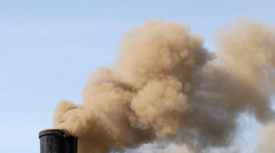Sustainability in Health and Safety
Johns Hopkins researchers: Climate change threatens to unlock new microbes, increase heat-related illness and death
Bloomberg Distinguished Professors Ahima and Casadevall warn of new infectious diseases and problems related to thermoregulation
January 23, 2020
A FairWarning Story
Dirty air and the human brain: Does pollution poison the mind?
December 13, 2019
Never miss the latest news and trends driving the safety industry
eNewsletter | Website | eMagazine
JOIN TODAYCopyright ©2024. All Rights Reserved BNP Media.
Design, CMS, Hosting & Web Development :: ePublishing








